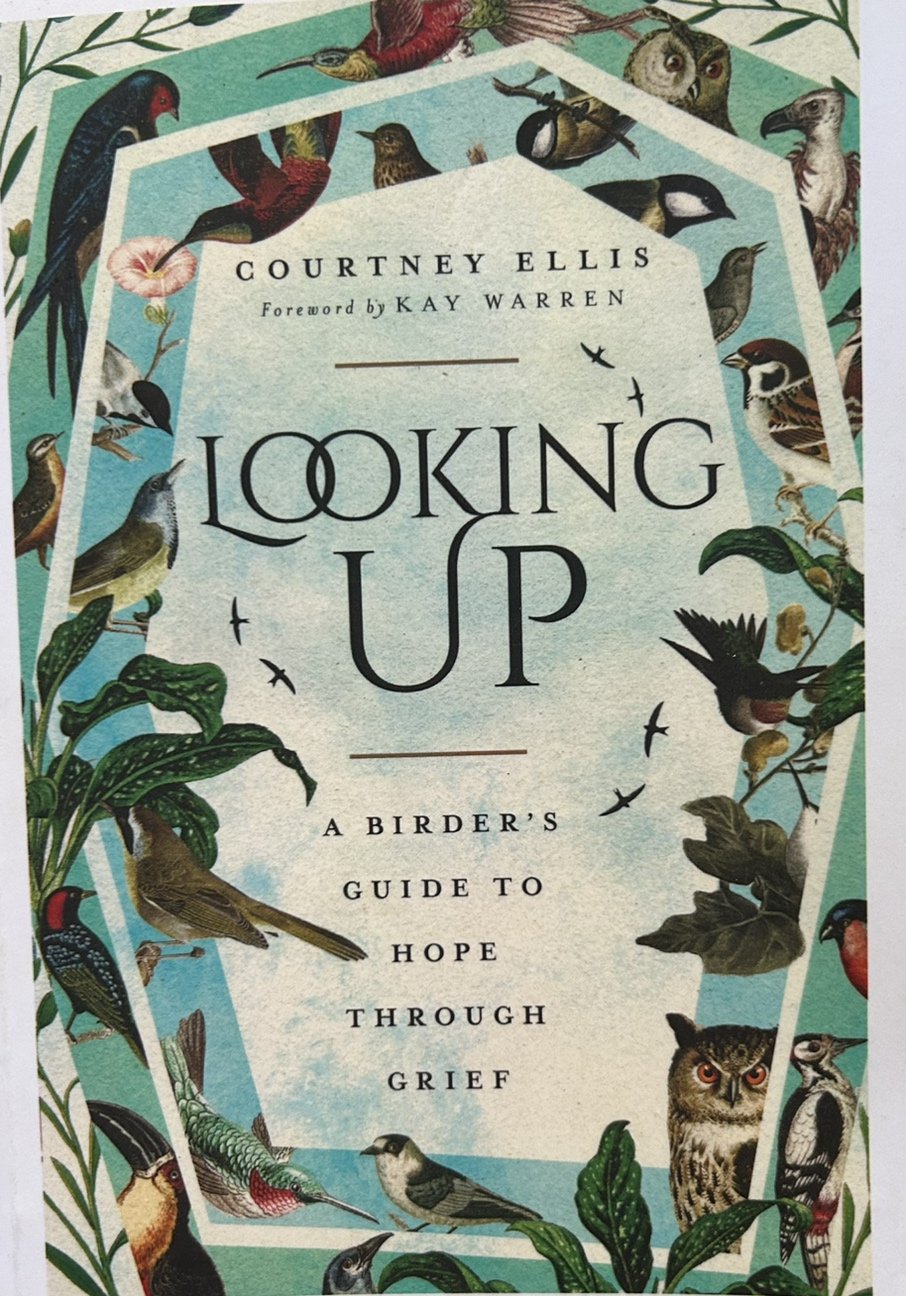Looking Up
Dreadful things occurred during the Covid pandemic. A marvelous thing also happened that continues to flourish. Millions of people are discovering nature - forests, rivers, lakes, mountains. There is a significant worldwide increase in birdwatching. Moreover, according to an essay in Scientific Reports, “everyday encounters with birdlife were associated with time-lasting improvements in mental well-being.” When asked why birds bring such delight, scientists say that listening and looking at them releases some level of wonder that calms the mind and lifts the spirit. As a life-long birder who can recall my “spark bird,” I agree. I’ve also been a pastor for half my life. These two realities drew me to this book.
Courtney Ellis, a pastor and a new birder, recounts her experience falling in love with birds. She shares her delight with birding, weaving particular knowledge of birds into a memoir of grief, attending her beloved dying grandfather. It’s a rare book that combines the threads of pastoral theology and practice, personal grief and a knowledge of birds that provides a doorway into a wider world of God’s creation. Testifying to her wonder, Ellis gushes, “The more I fall in love with birds, the more I grow to love the whole of creation, standing in awe of the one who spun it all into being.” Effortlessly, the reader moves along with the author as she discusses the pressures of preparing for Holy Week while grieving, seamlessly guiding us into a discussion of the behavior of birds that sheds fresh insight on caring for those grieving. Discussing the Laysan Albatross, who mate for life, she says, “every person is grieving. Every person in our pews. To live is to experience loss. To love is to experience it all the more. Sometimes I wish grief was a visible as an albatross-around-the-neck, like a necklace. It would make us kinder.”
Those yearning to deepen their experience with creation will be delighted by Ellis’ capacity to learn from her birding adventures. She writes “I love that birding is an exercise in delight, wonder and gratitude.” Echoing Mary Oliver and Simone Weil, “[Birding] teaches me to pay attention, and attention, I think is at the very heart of what it is to be a person.” That is what this book is ultimately about: becoming a person fully alive; present to creation and present to other human beings, particularly those who are suffering. Once you are capable of paying attention in a particular way, it strengthens the capacity to pay attention to life - and death. Encouraging her readers mired in struggle, she quotes Wendell Berry: “be joyful, though we’ve considered all the facts.”
Ellis made a creative narrative structure for her blend of theology, ornithology, pastoral practice and relationships. The chapters feature thirteen birds, some common to everyone like the blue jay, mockingbird, and sparrows, others not so much like quail, warblers or albatrosses. Each chapter weaves knowledge of the species into reflections on compassionate care and personal grieving. The knowledge is a doorway to her experiences with grief and hope. This is a birder-pastor at the height of her skills. Read this book for the birds. Read it for the memoir. Read it that you may flourish in God’s creation.
